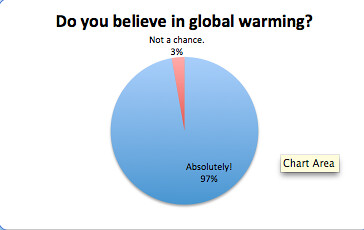
The Federal Emergency Management Agency (FEMA) recently announced its decision to give “disaster preparedness funds” only to states that plan for climate change. This is a concern for states where climate change has become taboo, including the state of Florida.
Governor Rick Scott was said to have banned the term “global warming” immediately after stepping into office. This is only one of several terms said to now be labeled taboo by the state governor including a decision to exchange “sea level rise” with “nuisance flooding” instead. This spells a possible disaster for the Sunshine State in the event that a disaster does in fact happen. The ban is not explicitly found in any Florida legislation but is reported to be an “unwritten ban” by the Florida Center for Investigative Reporting.
Although this rumored unwritten ban has been refuted by Scott’s spokesperson, a former employee confirmed that the ban does exist.
“We were told not to use the terms ‘climate change,’ ‘global warming’ or ‘sustainability,'” former attorney of the Florida Department of Environmental Protection Christopher Byrd said in an interview with USA Today. “That message was communicated to me and my colleagues by our superiors.”
FEMA reportedly contributes $1 billion a year to states in preparation for damage caused by natural disasters. The organization has been in effect since the 1980s and is said to have given a grand sum of $4.6 billion since its founding. The new decision, effective March 2016, is a change from their previous rules that have been in action since 2008. This new change came after pressure from environmentalist groups in an attempt to persuade conservative states to change their opinion on climate change for the sake of its residents.
“[It is] to raise awareness and support for implementing the actions in the mitigation strategy and increasing statewide resilience to natural hazards,” FEMA spokeswoman Susan Hendrick said.
Florida is joined by Louisiana, New Jersey, Texas and North Carolina; all are states that are periodically threatened by natural disasters such as hurricanes, tornadoes and severe flooding.
Florida is also susceptible to rising sea levels. A study by the National Climate Assessment stated that there is an “imminent threat of increased inland flooding during heavy rain events in low-lying coastal areas such as southeast Florida, where just inches of sea-level rise will impair the capacity of storm water drainage systems to empty into the ocean.”
“There is no doubt that sea level is inevitably rising as a result of global warming,” thesis student and Green Affairs Representative Isabella Soutullo said. “And it will continue to rise if mitigation efforts aren’t implemented.”
At this point, Florida will be ineligible for funding from FEMA in the future if climate change continues to be an unwritten ban from Governor Rick Scott.
Information for this article was taken from insideclimatenews.org and usatoday.com.
